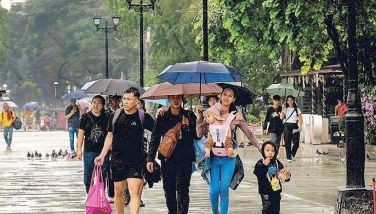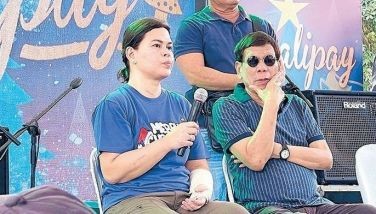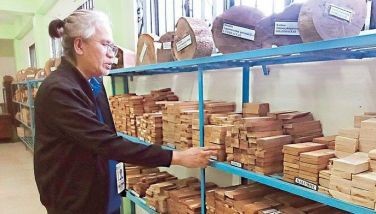Hawaii senator co-sponsors bill to aid veterans' kids
HONOLULU — A US senator is co-sponsoring legislation that would allow the children of Filipino World War II veterans living in the United States to become permanent US residents.
The Military Families Act was introduced Monday by Sen. Daniel Inouye of Hawaii, and five fellow Democratic senators.
The Filipino soldiers were offered US citizenship in exchange for fighting alongside American troops more than 60 years ago.
But it took Washington 45 years after the war to offer the veterans a proper chance to obtain citizenship. And the Immigration Act of 1990 only allowed each veteran to bring one immediate family member to the United States.
The shortcomings of that law have left the sons and daughters of the veterans with little choice but to get in line for immigration visas along with everyone else, if they wanted to live in the US On average, it took 20 years.
There are as many as 50,000 Filipino veterans of World War II alive today. Some 10,000 are said to live in the United States, including 2,000 in Hawaii. Most are in their 70s and 80s.
In July, Philippine President Gloria Macapagal Arroyo presented Inouye and fellow Hawaii Sen. Daniel Akaka with presidential citations to thank them for their work on behalf of Filipinos who fought with US troops in World War II.
The new bill would also allow immediate family members of active military service members to become permanent residents, even if the sponsoring soldier died in service.
“The introduction of the Military Families Act is a reminder that our immigration system is badly broken, needlessly separating families, and even harming immigrants that are fighting and dying for our country,” Mary Giovagnoli, director of the Washington-based Immigration Policy Center, said in a statement. “The Senate has delivered a well-deserved tribute to our immigrant soldiers and their families.
“Those who serve our nation – and their families who also make great sacrifices – deserve the full range of what our nation has to offer, including a path towards US citizenship,” she said. – AP
- Latest
- Trending






























